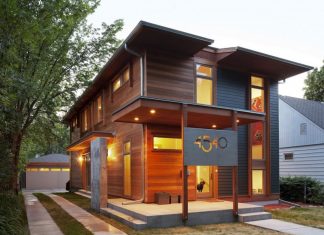The Atlanta area was hit hard in 2020 by rampant unemployment in the wake of the COVID-19 pandemic, which caused a good deal of uncertainty in the real estate market. Despite all that, the real estate market performed reasonably well and was poised to undergo a boom in the aftermath. When 2021 rolled around, housing prices skyrocketed, and that trend has continued right up to the present time. As of January 2022, the median price of a house sold anywhere in the 11-county Atlanta region was $375,000. This growth represented a 23% increase year-over-year from the previous January. It was a clear indicator of the overall health of the market.
A couple of factors are responsible for this boom in the Atlanta housing market: the meager interest rates that persisted throughout the year. The low-interest rates gave buyers much more buying power, which brought many more buyers into the market seeking housing. With low rates and a low inventory of available units, there was a much greater demand than supply. This information helps account for the soaring prices that prevailed throughout 2021 and continue in effect through the early part of the current year.
In May of 2021, the available housing inventory stood at 1.8 months’ supply, which was already a record low. Since then, the inventory of housing available has decreased steadily to the point where it now stands at .9 months’, which is an all-time low. Given that the supply continues to be inadequate to meet demand, it seems likely that the surging prices will continue well into the foreseeable future. That means the median sale price of $375,000 may climb even higher during 2022 and that there will be even more buyers chasing fewer homes.
Atlanta housing by the numbers
Total residential sales of single-family housing units stood at 4,289 for January 2022, which was an 8.8% dropoff from January sales of 2021. There were 6,166 new listings, representing a 12.3% decrease from the previous year. However, prices increased considerably due to the strong demand and short supply. While median sales prices rose 23% to $375,000, the average sale price rose 16.9% to $438,500. Total inventory stood at 6,240 units, which was also a significant drop from a year earlier, and amounted to a 24.3% decrease.
During the one year extending into May of 2021, the sale-to-list-price ratio has been hovering close to 100%. That means sellers are getting the total asking price of units on the market. In contrast, buyers prefer that the ratio leans toward 90%. It is possible that during the remainder of 2022, the sale-to-list price could exceed 100% because of the fierce competition for housing throughout the eleven counties of the Atlanta metro area.
Issues with Supply
A big part of the shortage of affordable housing in the Atlanta area is that developers have shown a preference for constructing multi-family units to accommodate the perceived target audience. That means new construction has focused mainly on dwellings that do not add to the inventory of available housing units. One of the advocates for more affordable housing in the city, Mr. Ben King, researched the situation and discovered that Atlanta is building fewer single-family units today than in 1994. He and others are trying to bring this to the attention of city leaders to spur more new construction for affordable single-family dwellings.
New construction
Atlanta itself is a booming city with a thriving economy. The workforce is one of the most educated groups in the country. It is a highly suburban area, with most people living outside the city and commuting in for work. That means housing will continue to be in high demand and that there will be continued demand for new construction.
Real estate experts predict that new construction will be sustained through 2025, as the number of new incoming residents will support that kind of new construction. Many anticipate that there will be a 1% growth in new construction in 2022 and a 1.8% growth in home building in 2023.
The city has rebounded from COVID-19 to within .1% of its pre-pandemic employment statistics, so the outlook for housing looks extremely promising.
Forecast for Atlanta Housing
There is no question about the attractiveness of Atlanta for business opportunities. It is home to 9 out of 10 Fortune 500 companies, and 18 companies have made Georgia their world headquarters. Area Development magazine named Georgia the best state for business for seven straight years, from 2014 to 2020. In 2019 alone, the city acquired 285,000 new residents as people flocked to the center for business in the deep South. Of course, all these new residents will require housing and employment. The employment opportunities are there, so people are likely to stay and put down roots after acquiring the necessary housing.
Atlanta home values rose 28.6% in just the last year. The forecast calls for them to grow another 23.6% in the coming twelve-month period. It will remain a strong sellers’ market for that entire time, as supply will have difficulty equaling the strong demand for housing. The influx of new residents will continue because of the tremendous employment opportunities, which will spur more demand for housing. There will be a housing shortage throughout the coming year. However, since Atlanta housing prices are well below that national average, it will still be a good value despite soaring prices.















